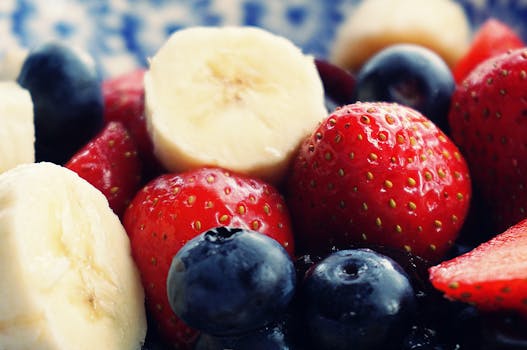Antioxidants and Aging: What You Need to Know
The quest for eternal youth is as old as time itself. As we age, our bodies undergo various changes, many of which are not particularly welcome. Wrinkles, gray hair, and a decline in physical and cognitive abilities are all part of the natural aging process. However, there's a silver lining to this seemingly grim picture: antioxidants. These powerful substances are nature's defense against aging and can help slow down the process significantly.

Antioxidants are molecules that fight off free radicals - unstable atoms that can damage cells, causing illness and aging. Free radicals are produced naturally in our bodies through processes like metabolism. However, they can also be introduced from external sources such as tobacco smoke, radiation, and environmental pollutants. When the body has too many free radicals and not enough antioxidants to neutralize them, it leads to a state known as oxidative stress. This condition has been linked to a host of health problems including heart disease, cancer, arthritis, stroke, respiratory diseases, immune deficiency, emphysema, Parkinson's disease, and other inflammatory or ischemic conditions.
So how exactly do antioxidants work? They neutralize free radicals by donating an electron, which stabilizes the radical and prevents it from causing further damage. This is why foods rich in antioxidants are often touted as anti-aging superfoods. Berries, dark chocolate, pecans, artichokes, cilantro, kidney beans, cranberries, blackberries and strawberries are just some examples of antioxidant-rich foods.
Incorporating these foods into your daily diet can help combat age-related decline. But it's not just about what you eat; it's also about how you eat it. Cooking methods can affect the antioxidant content of food. For instance, boiling vegetables can lead to a significant loss of beneficial compounds. On the other hand, methods like steaming or microwaving tend to preserve antioxidants.
However, while antioxidants play a crucial role in maintaining our health and slowing down the aging process, they are not a magic bullet. Aging is a complex process influenced by a variety of factors including genetics, lifestyle choices, and environmental exposures. It's important to remember that while a diet rich in antioxidants can contribute to healthy aging, it needs to be part of a balanced lifestyle that includes regular physical activity, adequate sleep, stress management, and avoidance of harmful habits like smoking and excessive alcohol consumption.
The relationship between antioxidants and aging is an exciting field of study with much still to be discovered. Leading nutritionists and gerontologists continue to explore this area, providing valuable insights into how we can age gracefully and healthily.
So, what's the final word on antioxidants and aging? They are undoubtedly a powerful tool in our arsenal against aging. By understanding their function and incorporating antioxidant-rich foods into our diets, we can help our bodies combat age-related decline. However, it's essential to remember that antioxidants are just one piece of the puzzle. A holistic approach to health and wellness that includes a balanced diet, regular exercise, adequate sleep, stress management, and avoidance of harmful habits is the key to aging gracefully.
In the grand scheme of things, while antioxidants are not the fountain of youth we all dream about, they certainly offer us a way to age more healthily and gracefully. By making informed choices about our diet and lifestyle, we can influence how we age. After all, growing old may be inevitable but doing so with vitality and grace is within our control.